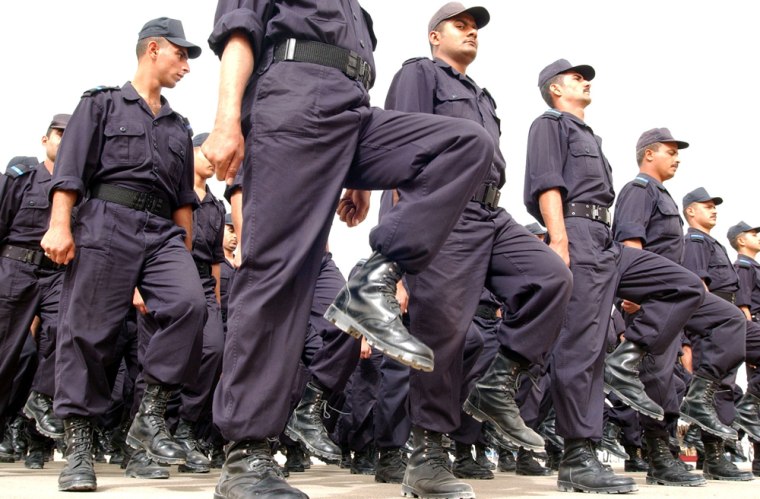What has become abundantly clear is that winning the war in Iraq was far easier than keeping peace in the aftermath.
Most politicians and military analysts agree that, ultimately, Iraqi forces should handle security.
But Iraqi training is only in the initial stages. The professional army under Saddam Hussein was disbanded in the early days of the invasion, so in the near term the United States holds the bag. To further complicate the training issue, the attack over the weekend that left 50 U.S.-trained Iraqi soldiers dead is believed to have been carried out by insurgents tied to Jordanian terrorist Abu Musab al-Zarqawi who infiltrated the soldiers' ranks.
So one of the biggest decisions for the White House and military leaders in coming months is whether to significantly expand the number of U.S. troops on the ground.
Among those who urged larger deployments was Army Chief of Staff Gen. Eric Shinseki, who warned just before retiring that "several hundred-thousand troops would be needed to garrison Iraq."
U.S. forces are stretched as it is. There are 138,000 American troops in Iraq, another 34,000 in support roles in Kuwait and still more in Afghanistan and Bosnia.
The strain on the U.S. military is greater than it might seem, says Charles Pena, director of Defense Policy Studies at the Cato Institute, because of the need to rotate troops.
“To maintain 174,000 troops in Iraq and Kuwait requires a total force size of 522,000 troops for a 3:1 rotation ratio and 870,000 troops for a 5:1 ratio — both of which exceed the size of active-duty forces in the U.S. Army,” he says, arguing that the United States should be exiting Iraq and focus on al-Qaida.
The military has done what it can to stretch its forces in Iraq, relying heavily on the Reserve and National Guard, extending terms of duty and imposing “stop losses,” which require soldiers to stay in active duty for longer than they volunteered. There are limits to the approach, since it makes potential recruits reluctant to sign up.
Given the strain on U.S. forces, the question of a draft has surfaced, but so far it is mainly a political football with virtually no popular support. Even less controversial efforts to stretch existing forces will likely wait until after the election.
If elected, Kerry vows to hold an international summit to gain more support in Iraq, presumably both for security and for rebuilding the country.
He may have a fresh start with international leaders, but most analysts don’t see a significant military contribution coming out of it. Indeed, some of Washington's most significant allies in Iraq have been under political pressure to withdraw troops from the unpopular conflict, and Spain has already done so.
“The only way to appreciably change the situation on the ground is to get NATO in,” says Allard. “It’s the only significant and coherent military that would work.”
For the moment, it is a shell game. The Defense Department accelerated troop withdrawal from South Korea, which was planned under a worldwide reorganization, and dispatched the soldiers to Iraq.
And as the United States pursues its city-by-city crackdown on insurgent strongholds in northern Iraq, the administration persuaded Britain to redeploy some of its 9,000 troops from duties in Iraq’s southern port of Basra to the volatile north.
